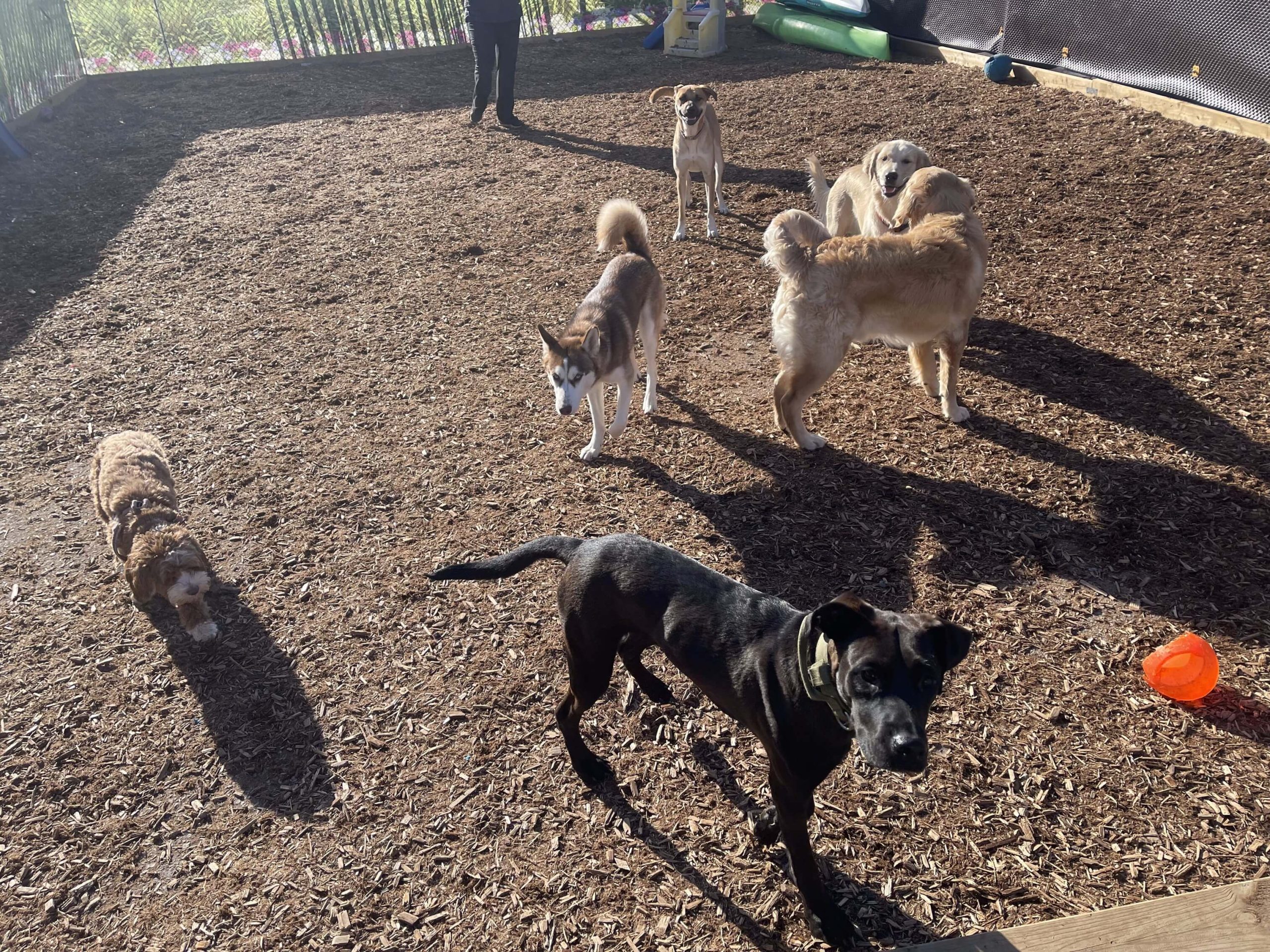Dog daycare has quickly become a lifeline for busy pet parents and their four-legged family members. It’s more than just a place for dogs to spend the day—it’s a structured, fun, and engaging environment where dogs get the exercise, social interaction, and mental stimulation they crave.
At Playday Pups, we understand that every dog is different. Some thrive in the company of others, while others need a bit more guidance and structure to blossom. Whether you’re working long hours, heading out of town, or simply want to enrich your pup’s daily life, dog daycare could be just what your furry friend needs.
But how do you know if your dog is ready—or in need—of daycare? Let’s explore the top signs.
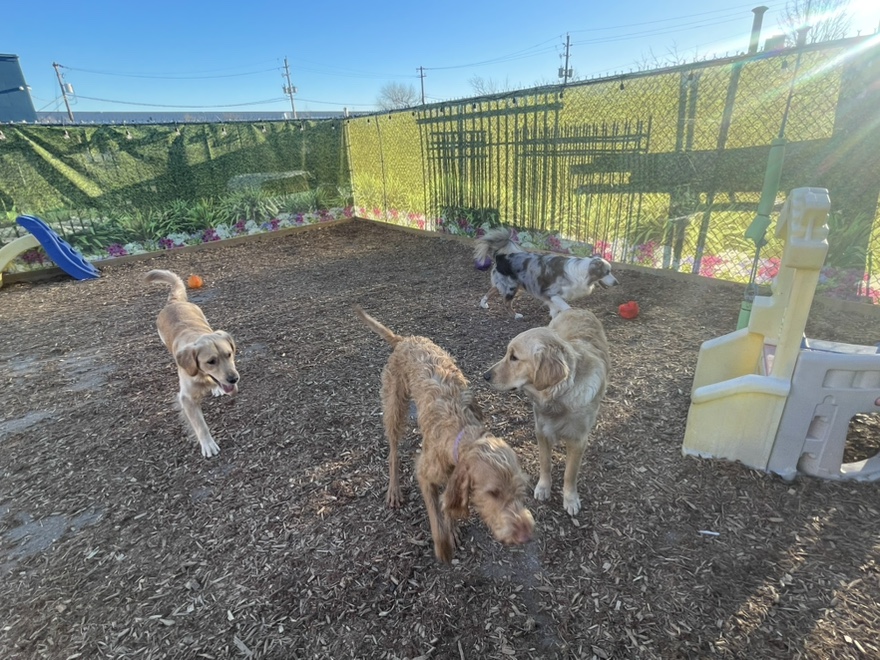
Top 10 Signs Your Dog Might Need Daycare
1. Destructive Behavior When Home Alone
If you come home to shredded pillows, chewed shoes, or claw marks on the door, it’s a red flag. Dogs left alone for too long without stimulation often act out, not from spite, but from boredom or anxiety. Daycare keeps them engaged and eliminates destructive downtime.
2. Excessive Barking or Whining
Does your neighbor complain about your dog barking non-stop when you’re gone? Constant vocalization can indicate distress or boredom. In daycare, your pup gets enough activity to stay calm and quiet at home.
3. Hyperactivity When You Return Home
If your dog greets you like they’ve had an energy drink—jumping, spinning, and demanding playtime—it might mean they haven’t burned off their energy during the day. Dog daycare ensures they come home happy, tired, and well-behaved.
4. Separation Anxiety Symptoms
Pacing, drooling, whining, and accidents inside the house when you’re gone are signs of separation anxiety. Structured daycare can ease this anxiety by providing routine, companionship, and a comforting environment.
5. Lack of Socialization with Other Dogs
Is your dog shy or aggressive around other dogs? Regular exposure in a supervised setting helps dogs learn healthy play habits and build confidence. Daycare offers the perfect social training ground.
6. Unusual Weight Gain or Lethargy
A sedentary lifestyle isn’t healthy for any dog. Weight gain and sluggishness often stem from inactivity. A day filled with running, games, and doggy interaction at daycare promotes a healthy lifestyle.
7. Frequent Accidents Indoors
Even house-trained dogs can regress if they’re anxious or under-stimulated. If your well-behaved pup starts having accidents, it could be a cry for attention or a sign of stress. Daycare can provide a needed outlet and structure.
8. Boredom-Induced Bad Habits
From counter surfing to garbage digging, a bored dog is a mischievous dog. These behaviors are cries for stimulation. Dog daycare offers varied activities that replace bad habits with healthy play.
9. Behavioral Regression
Older dogs may begin acting like unruly puppies if they lack stimulation. Behavioral regression like jumping on guests or ignoring commands can be reversed with consistent interaction, which dog daycare can provide.
10. You’re Too Busy to Provide Adequate Exercise
Let’s face it—life gets busy. When work, family, and obligations pile up, your dog’s exercise needs may fall by the wayside. Daycare ensures your pup gets daily physical and mental exercise, even when you can’t provide it personally.
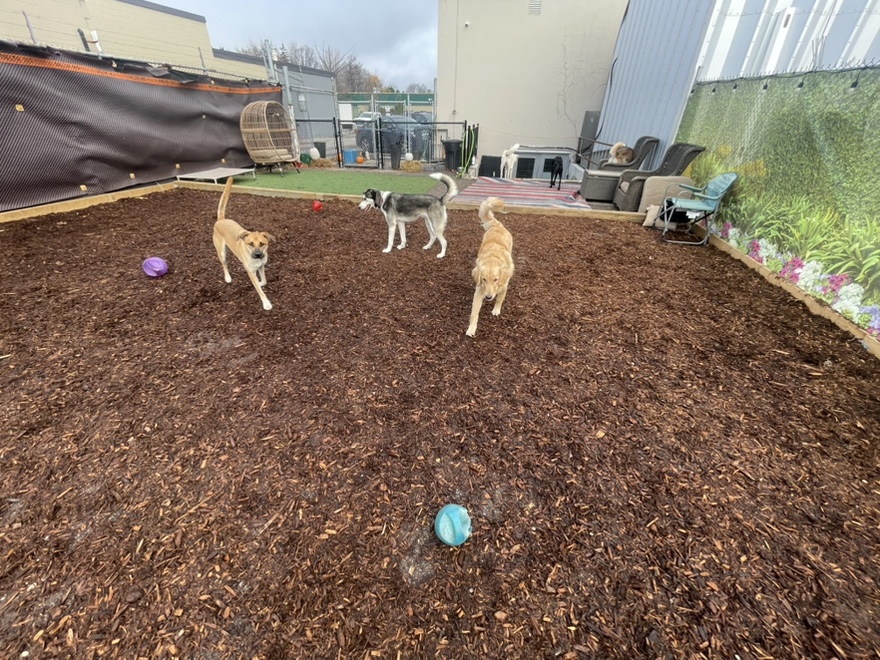
How to Choose the Right Dog Daycare
Not all dog daycares are created equal. Here’s what to look for when selecting a safe and supportive environment for your pup.
Staff Qualifications & Dog-to-Human Ratio
Look for certified staff with experience in canine behavior and group play. A low dog-to-human ratio ensures individual attention and safer playgroups.
Facility Cleanliness and Safety Measures
Clean, well-ventilated spaces with clear sanitation protocols are non-negotiables. Ask about emergency procedures and staff training.
Daily Routine and Playgroup Sizes
Structured days prevent overstimulation and keep dogs engaged. Small playgroups based on size and temperament ensure harmonious interactions.
Client Reviews and Word of Mouth
Check reviews on Google, Yelp, and Facebook. Word of mouth from other pet parents can offer invaluable insight into the quality of care.
Meet-and-Greet Evaluation
The best daycares, like Playday Pups, offer a trial visit to assess your dog’s comfort level and temperament before enrolling full-time.
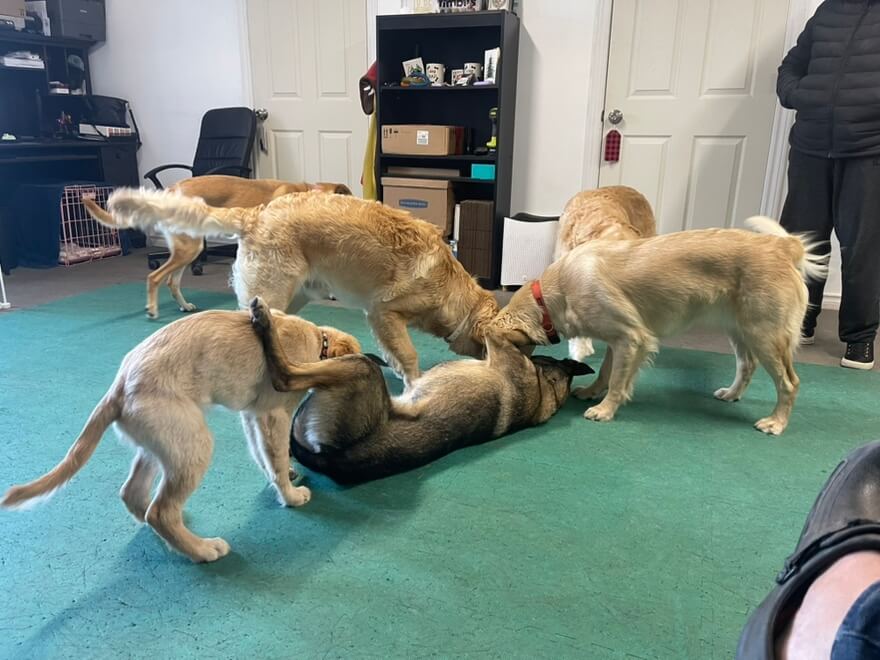
Why Playday Pups is the Perfect Choice
At Playday Pups, we go beyond just babysitting. Our daycare is built on trust, enrichment, and genuine love for dogs. Here’s what sets us apart:
- Enrichment Activities like puzzle games and agility.
- Experienced Staff trained in canine first aid and behavior.
- Flexible Packages for daily, weekly, or occasional visits.
- Live Webcam Access so you can check in on your pup anytime.
Our structured, nurturing environment ensures your dog gets the best care while you get peace of mind.
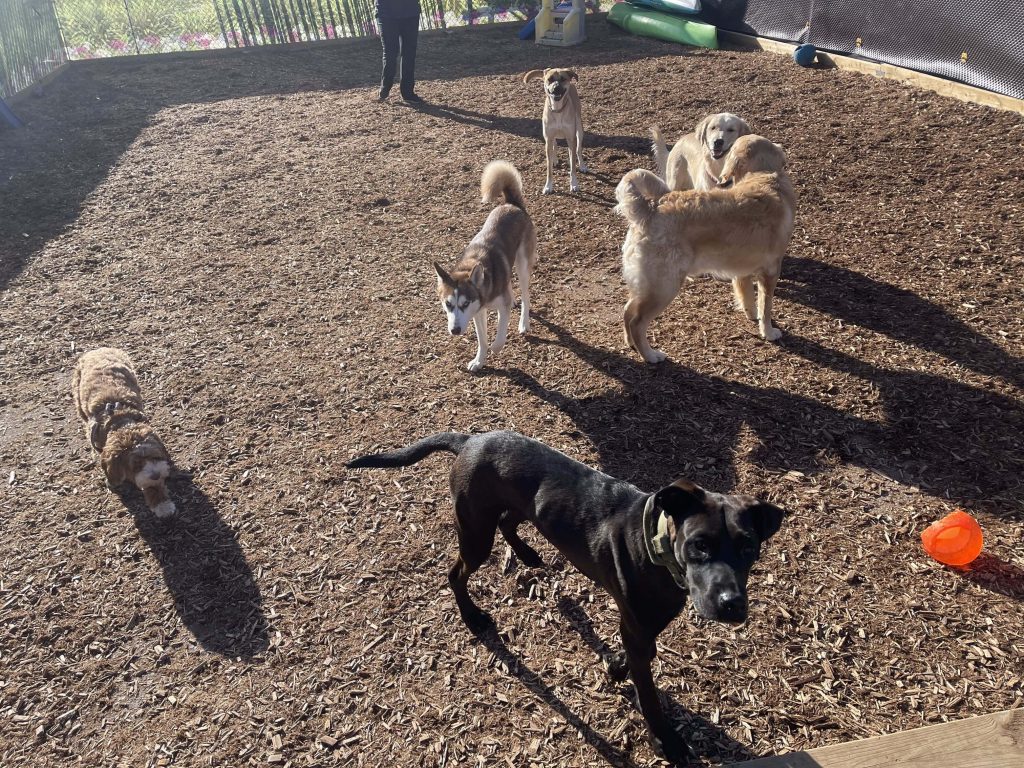
FAQs About Dog Daycare
Q1: Is dog daycare safe for puppies?
Yes, as long as they’re vaccinated and socialized. Many daycares have special puppy playgroups.
Q2: Will my dog be supervised at all times?
Absolutely. Reputable daycares, like Playday Pups, provide constant supervision by trained staff.
Q3: Can daycare help with behavioral issues?
Yes! Many behaviors improve with consistent socialization and activity.
Q4: How do I prepare my dog for daycare?
Bring vaccination records, a familiar toy, and arrive early for their first session.
Q5: Will my dog be tired after daycare?
Yes—in a good way! Most dogs sleep soundly after a full day of fun.
Q6: How often should I bring my dog to daycare?
It varies by dog, but 2–3 times a week is ideal for most.
ecognizing the signs your dog needs daycare is the first step to giving them a healthier, happier life. If your dog shows any of the behaviors above, daycare could be the perfect solution.
And when it comes to choosing the right place? Playday Pups combines expert care, structured play, and genuine love for dogs. Book a meet-and-greet today and let your pup enjoy their best day, every day.
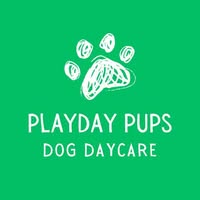
Playday Pups is a boutique dog daycare and home-like boarding service located in Burlington, Ontario. Owned and operated by Tara and Dave, we specialize in creating a fun, safe, and structured environment where dogs can play, relax, and thrive. Whether you’re looking for dog daycare during the workweek or dog boarding for overnight stays, we provide personalized care for every pup. Ready to join the pack? Start by filling out our dog registration form.
☎️ (905) 230-2541 | 📨 hello@playdaypups.ca | 🚗 1234 Advance Rd, Burlington Google MAP
